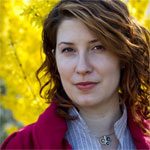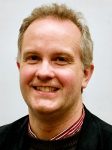A new, full-year capstone course is being pilot tested this fall at York University. C4: The Cross-Campus Capstone Classroom brings together third- and fourth-year students from different faculties into multidisciplinary teams focused on solving pressing, real-world challenges posed by organizations operating in both the for-profit and not-for-profit worlds. C4 partners include the Yonge Street Mission, the Al and Malka Green Artists’ Health Centre, Glendon’s Globally Networked Learning Project, and Panoplo Inc.— among many others.

Danielle Robinson
“Capstone courses provide high impact learning opportunities for students that set them up to succeed after graduation,” says Danielle Robinson, the director of the York Capstone Network and an associate professor in the School of the Arts, Media, Performance, & Design. ”These important experiential learning courses, which are offered in many departments across the University, apply and thus consolidate what a student has learned in his or her major. This is achieved generally through an individual or group project, but placements can also serve as excellent capstone experiences for students, if they are integrated with ongoing critical reflection and assignments that apply students’ skills and knowledges."

Franz Newland
Robinson and Franz Newland, an assistant professor in the Lassonde School of Engineering, are co-facilitating C4 as an extension of the York Capstone Network they founded last year, with integral support from the Teaching Commons and the Career Centre. The YCN, which is now bolstered by a two-year AIF Grant, brings together dozens of faculty who have been, are, or want to be teaching capstone courses. Network members gather for monthly cafés, where capstone students, pedagogy experts, and York staff allies explore the immense rewards and challenges of capstones.
C4 is a pan-University classroom, but not yet an official course, that requires students to register in a three- or six-credit independent study, directed reading, senior thesis, or capstone course in their home department. Once students gain entry to C4 through their department, they will meet senior students from other faculties, form interdisciplinary teams, and then get to work on real-world problems provided by community partners, who will mentor them over the course of the school year.
“The advantage of this approach to capstone teaching is students get a taste of the ‘real-world’ before leaving York,” says Carolyn Steele, a career development coordinator in the Career Center and adjunct professor in Humanities. “The world along with its challenges and opportunities are intrinsically multidisciplinary; however, many degrees are not—they are typically disciplinary in focus. C4 gives participants the opportunity to collaborate with students from other majors as well as with professors and professionals outside their departments. In this way, they come to know what they have to offer the world as well as the value of their discipline and their York degree.”
The pan-University nature of C4 speaks to its dedication to true interdisciplinary collaboration and creation. “Other multidisciplinary capstones typically bring together students from only two or three pre-selected disciplines,” says Natasha May, an educational developer in the Teaching Commons and adjunct professor in mathematics. “In contrast, C4 makes it possible for as many as eight students—all coming from different academic backgrounds—to come together to engage in problem-based learning, with the potential for each group to have a completely different disciplinary makeup. This all makes for very rich experiential learning that will set C4 students apart on the job market.”
Robinson and Newland are supported in this groundbreaking endeavor by a resource team that is as diverse as C4’s participants: Carolyn Steele (Career Centre and LAPS), Natasha May (Teaching Commons and Science), Bridget Cauthery (AMPD), Alice Kim (Health), and Kai Zhuang (Lassonde). They are backed up by Lassonde and its Student Engagement Team and as well as a host of York’s experiential education (EE) coordinators, who have spent the summer building relationships with multiple community partners and curating nearly 40 “real-world” challenges for multidisciplinary teams of York students to tackle.
At the end of the full-year course, C4 student teams will present their projects to all the community partners at a capstone showcase event that will be open to the whole York community. Newland says that “C4 ends with a big celebration—of these students and all they have accomplished this year, of the partners and all they have contributed, and of York and its commitment to pedagogical innovation, experiential education, and student success.”
He urges students who are looking for a “real world” experience before they graduate to confirm their interest in C4 as soon as possible by contacting their home departments and the C4 Team directly at c4class@yorku.ca.
“Pitch Day, where the community partners pitch their challenges to the student teams, is Sept. 6th from 4 to 7 p.m and the first C4 class meeting takes place Sept. 9th from 6 to 9pm,” says Newland. “Programs and students who don’t want to miss this terrific opportunity should email us right away—all are welcome.”
To learn more, visit the C4: Cross-Campus Capstone Classroom webpage on the York Capstone Network website.
Originally published on YFile
